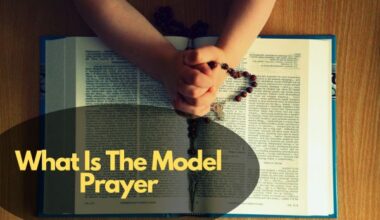Table of Contents Show
The joyous celebration of Christmas is a worldwide phenomenon, marked by festive decorations, gift-giving, and gatherings with loved ones. But as the holiday season approaches, some individuals ponder a fundamental question: Is it written in the Bible to celebrate Christmas?
Is It Written In The Bible To Celebrate Christmas?
Turning our attention to the Bible, we search for explicit mentions of Christmas celebrations. Surprisingly, the Bible does not provide a direct account of the nativity celebrations. Instead, it offers insights into the lives and teachings of biblical figures. It provides insight into various occasions and practices that hold spiritual significance.
Early Christian Attitudes Towards Celebrations
In the early Christian era, attitudes toward celebrations were diverse. Some embraced festive observances, while others approached them with caution. This period witnessed the assimilation of various customs into Christian practices.
- Views on Festive Observances: In the earliest years of Christianity, there was no universal consensus on how to approach festive observances. Some early Christians embraced celebrations, seeing them as opportunities for communal joy and expressions of gratitude. Others, however, approached festivities with caution, wary of practices rooted in pagan traditions.
- Adoption of Various Traditions: Early Christians often adopted and adapted existing cultural and religious practices. The intention was to provide a Christian alternative to prevailing celebrations, aligning them with the emerging Christian worldview. This process allowed for the incorporation of certain elements while shedding others deemed incompatible with Christian principles.
- Integration of Roman and Jewish Traditions: The early Christian community existed within a Greco-Roman cultural context. As Christianity expanded, it encountered diverse traditions, including those of the Roman Empire. At the same time, early Christians retained connections to Jewish traditions, influencing their approach to celebrations.
Medieval and Renaissance Period
As centuries passed, Christmas evolved during the medieval and Renaissance periods. Customs solidified, and the holiday became intertwined with Christian culture, reflecting the fusion of religious and secular elements.
Reformation Era
The Reformation brought about significant changes in religious practices. Some factions embraced Christmas, while others viewed it with suspicion. The era witnessed a divergence in attitudes towards festive celebrations.
Puritan Influence
The Puritans, known for their strict adherence to religious principles, opposed the festivities associated with Christmas. In certain regions, celebrations were outright banned, reflecting a Puritanical perspective on religious observances.
Modern Christian Perspectives
Today, the celebration of Christmas varies among Christian denominations. Some fully embrace the festive season, while others approach it with more reserved observance. This diversity highlights the nuanced perspectives within Christianity.
Cultural Influence on the Christmas Celebration
The celebration of Christmas is not just a religious event; it’s a cultural phenomenon that brings people together across diverse backgrounds. The cultural influence on Christmas celebrations is immense, shaping traditions, customs, and the overall festive atmosphere in various unique ways.
- Cultural Music and Dance: Music and dance play a significant role in Christmas celebrations worldwide. Traditional carols, cultural songs, and dances are performed during festive events, contributing to the overall joyous atmosphere and reflecting the cultural diversity of the celebratory spirit.
- Globalization of Christmas Symbols: Iconic Christmas symbols like Santa Claus, reindeer, and snowmen have become global cultural phenomena. These symbols, originating from various cultural sources, now transcend borders, contributing to a shared global understanding of the holiday.
- Diversity in Festive Foods: The culinary aspect of Christmas reflects diverse cultural influences. Traditional dishes associated with the holiday vary widely across regions, showcasing the richness of global culinary traditions. From Italian panettone to English plum pudding, each culture brings its unique flavors to the Christmas table.
Interpretations of Biblical Teachings
We delve into biblical teachings to address the question at the heart of the matter. Analyzing key scriptures, we explore theological perspectives on celebrations and seek to understand the essence of these teachings.
Controversies Surrounding Christmas
Unsurprisingly, controversies surround Christmas within religious communities. Criticisms range from concerns about the commercialization of the holiday to debates over its historical and biblical authenticity.
- Commercialization and Materialism: One recurring controversy is the commercialization of Christmas. Critics argue that the holiday has become excessively materialistic with an emphasis on gift-giving and consumerism overshadowing its spiritual and religious significance.
- Historical and Biblical Authenticity: Some individuals and groups debate the historical and biblical authenticity of Christmas. Skeptics question whether December 25th is the actual date of Jesus’ birth, citing the absence of a specific biblical directive to celebrate the nativity in the manner associated with Christmas traditions.
- Religious Debates Within Christianity: Within Christian denominations, there are ongoing debates about the appropriateness of Christmas celebrations. Some groups, influenced by historical perspectives reject or minimize the observance of Christmas due to concerns about its origins or the absence of explicit biblical commands.
- Secularization of Christmas: The secularization of Christmas has sparked controversy, as the holiday’s cultural and commercial aspects sometimes overshadow its religious roots. This tension between the secular and religious dimensions has led to debates about the true meaning and purpose of Christmas
Impact of Christmas on Faith
Reflecting on the spiritual values associated with Christmas, we explore how the holiday impacts faith. Balancing tradition with religious beliefs, individuals navigate the intersection of cultural celebrations and spiritual principles.
- Reflection on Spiritual Values: Christmas serves as a designated period for believers to reflect on their spiritual journey. The story of the nativity, and the birth of Jesus Christ prompts individuals to contemplate the core tenets of their faith, such as love, compassion, and the significance of God’s presence in human life.
- Balancing Tradition with Religious Beliefs: The celebration of Christmas involves a delicate balance between cultural traditions and religious beliefs. While enjoying the festive customs, believers often strive to maintain a connection with the deeper spiritual meaning of the holiday ensuring that the essence of their faith is not overshadowed by secular aspects.
- Communal Worship and Fellowship: Christmas provides an opportunity for communal worship and fellowship. Many Christian communities organize special church services where believers come together to celebrate the birth of Christ. This communal aspect fosters a sense of unity and reinforces shared faith among believers.
- Generosity and Acts of Kindness: The spirit of giving during Christmas resonates with Christian teachings about generosity and charity. Believers are often inspired to engage in acts of kindness through charitable donations, volunteering, or helping those in need. This manifestation of love and compassion aligns with the foundational principles of the Christian faith.
Global Variations in Christmas Observance
Christmas is celebrated globally, but the expressions vary widely. Different cultures bring unique traditions and customs to the festivities contributing to a global tapestry of unity and diversity.
Common Arguments For and Against Christmas
Theological debates over Christmas continue to spark discussions. We examine common arguments, both in favor of and against celebrating the holiday, acknowledging the diverse perspectives within the Christian community.
Conclusion
In conclusion, the question of whether it is written in the Bible to celebrate Christmas is not answered definitively within the scriptures. Instead, the celebration has evolved over centuries, influenced by cultural, historical, and religious factors. As the holiday season unfolds, it offers an opportunity for personal reflection on the balance between tradition and faith.
The early Christians navigated a landscape of varied attitudes towards celebrations, and the controversies surrounding Christmas persist, touching upon issues of commercialization, historical authenticity, and inclusivity. Despite these debates, Christmas endures as a global celebration, bringing together people from different backgrounds, cultures, and denominations in a shared spirit of joy and goodwill.
As we engage in the festivities of Christmas, it is an opportune time for personal reflection on the balance between tradition and faith. Whether one embraces the cultural aspects of the holiday, participates in religious observances, or approaches Christmas with a more reserved stance, the essence of the season remains rooted in the values of love, compassion, and the message of hope brought by the birth of Christ.
The celebration of Christmas is a deeply personal and communal journey, inviting individuals to explore the intersection of their faith, cultural heritage, and the universal desire for peace and goodwill. As we partake in the festivities and traditions, may the spirit of Christmas serve as a reminder of the timeless values that transcend any specific biblical command, fostering unity and a shared celebration of the season’s profound and enduring significance.
Frequently Asked Questions
1. Is there a specific Bible verse that mentions the celebration of Christmas?
No, the Bible does not explicitly mention the celebration of Christmas. The holiday’s traditions have evolved over time.
2. How do different Christian denominations approach Christmas celebrations?
Christian denominations vary in their approach to Christmas, with some fully embracing the festivity, while others maintain a more reserved observance.
3. Why do some religious groups oppose the celebration of Christmas?
Some religious groups, influenced by historical and theological perspectives, oppose Christmas due to concerns about its authenticity and commercialization.







